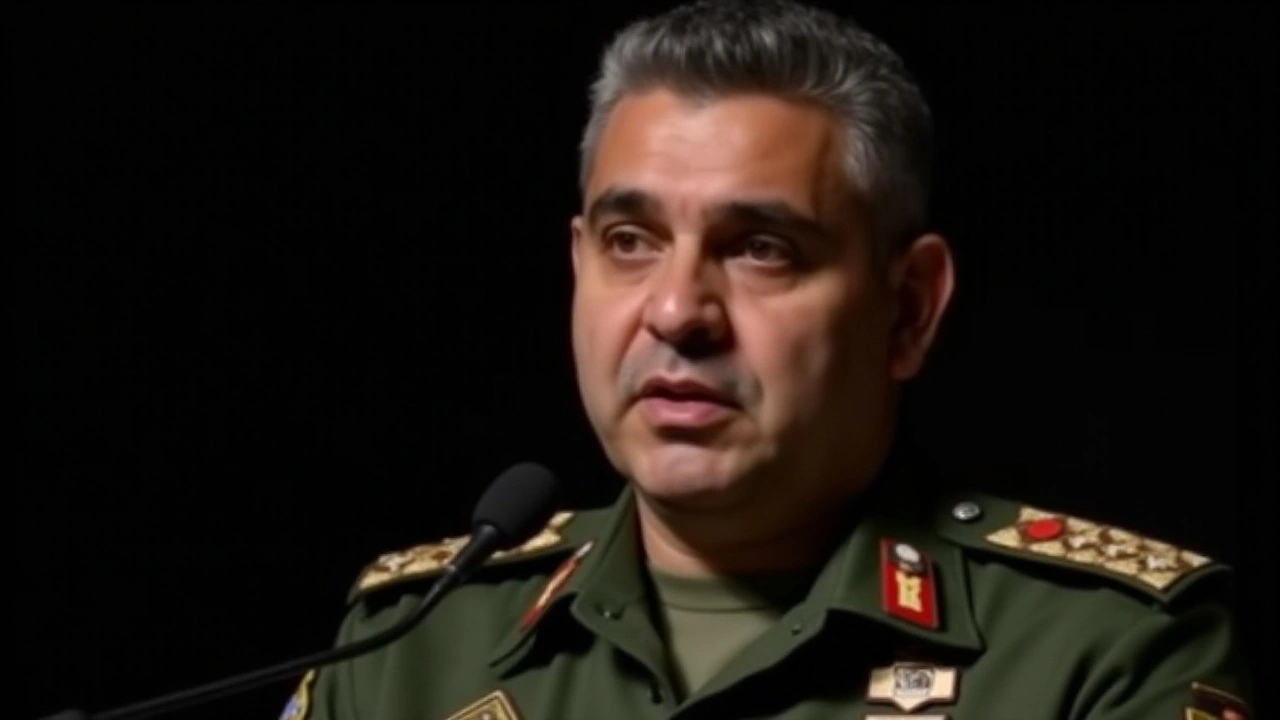Iran's Quds Force Leader Esmail Qaani to Receive Esteemed Honor Amid Health Confirmation

The Significance of the Fath Medal and Iran's Military Leadership
Esmail Qaani, the commander of the Quds Force, the elite foreign division of the Islamic Revolutionary Guard Corps (IRGC) of Iran, has been confirmed to be in good health. Reports indicate that he is set to be bestowed with the prestigious Fath medal by Iran's Supreme Leader, Ayatollah Ali Khamenei, an accolade celebrating his contributions to Iran's military endeavors. This announcement has sparked intense interest, given the recent upheaval and escalating tensions involving Iran's activities in the region.
The Fath medal holds significant meaning within Iran, especially in the context of military valor and leadership. Instituted in 1989, it recognizes military individuals who have demonstrated exceptional service, particularly during the crucial eight-year Iran-Iraq war, a defining moment in the nation's military history. Recipients of this award are viewed with great respect, and it is presented to those who have displayed unparalleled bravery or leadership, making Qaani's recognition an acknowledgment of his valuable role in the ongoing geopolitical landscape.
Recent Concerns and Clarifications About Qaani's Well-being
Commander Esmail Qaani's whereabouts and condition recently became a subject of global speculation and concern following Israeli airstrikes in southern Beirut. The strikes targeted strategic positions linked to Hezbollah, raising alarms about possible casualties among high-ranking figures associated with Iran, as Qaani had traveled to Lebanon following the assassination of a Hezbollah chief on September 27. Despite these concerns, Ebrahim Jabbari, a senior advisor to the IRGC, quickly moved to dispel any rumors, asserting that Commander Qaani remains in perfect health and will soon be celebrated with one of the country’s highest honors.
These reassurances were echoed by Iraj Masjedi, the deputy commander of the Quds Force, who dismissed any conjecture regarding injuries Qaani might have incurred. He refuted these claims outright, underscoring the commander’s current safety amidst the fraught circumstances of the region. This assertion was crucial in calming international and domestic concerns, providing a stabilizing narrative amid escalations in Israeli-Iranian tensions.
The Aftermath of Qassem Soleimani’s Death and Qaani’s Ascension
Esmail Qaani stepped into the spotlight as the leader of Iran's Quds Force following the dramatic U.S. drone strike that killed Qassem Soleimani in Baghdad in 2020. Soleimani had been an icon and a pivotal figure within Iran's military strategy, with an influential legacy that resonated deeply within Iranian society and extended into its strategic territories across the Middle East. Leading the Quds Force through such turbulent times, Qaani has had the daunting task of not only upholding his predecessor’s strategies but also forging his path and responding to evolving geopolitical dynamics.
Since his appointment, Qaani has been at the helm of Iran's expansive military and intelligence operations outside its borders, known for their complexity and geopolitical sensitivity. His command has been characterized by the necessity to navigate the treacherous waters of Middle East politics, where alliances are often mercurial, and conflicts can quickly spiral beyond control. Qaani’s recognition with the Fath medal speaks to his competent management and strategic foresight in such a contentious environment.
The Ongoing Conflict and Regional Dynamics
The recent focus on Commander Qaani’s health and recognition is set against a backdrop of heightened military confrontations between Israel and Iranian-aligned forces, particularly in Lebanon. Israeli airstrikes targeting Hezbollah positions have intensified, coinciding with a broader scale of conflict involving various Middle Eastern actors. Iran, through its Revolutionary Guard and the Quds Force, remains deeply implicated in these regional dynamics, perpetuating a cycle of retaliation and defense with its adversaries.
Qaani’s military leadership extends beyond mere wartime tactics; it involves sophisticated intelligence operations and strategic alliances with partners such as Hezbollah. His role is crucial in helping Iran fortify its presence in the region, counterbalancing the influence of opponents like Israel. The dynamics between these regional actors continue to shape the geopolitical landscape significantly, with implications for broader international relations.
Impact of the Fath Medal on Qaani’s Status and Legacy
Receiving the Fath medal places Commander Qaani among an elite cadre of military leaders recognized for their service and dedication. This honor is likely to bolster his standing within both the military and political hierarchy of Iran, enhancing his influence in strategic circles. It signifies a vote of confidence from Iran's top echelon, reaffirming his position as a vanguard of the nation's military operations.
Qaani's award underscores Iran's continued emphasis on valor and strategic military accomplishments amid its broader defense policies. As the region braces for ongoing conflicts and shifts, Commander Qaani’s leadership and the bestowed honor mark a significant chapter in his military career. It sets the stage for how he will marshal Iran's international military strategies in response to regional and global developments.